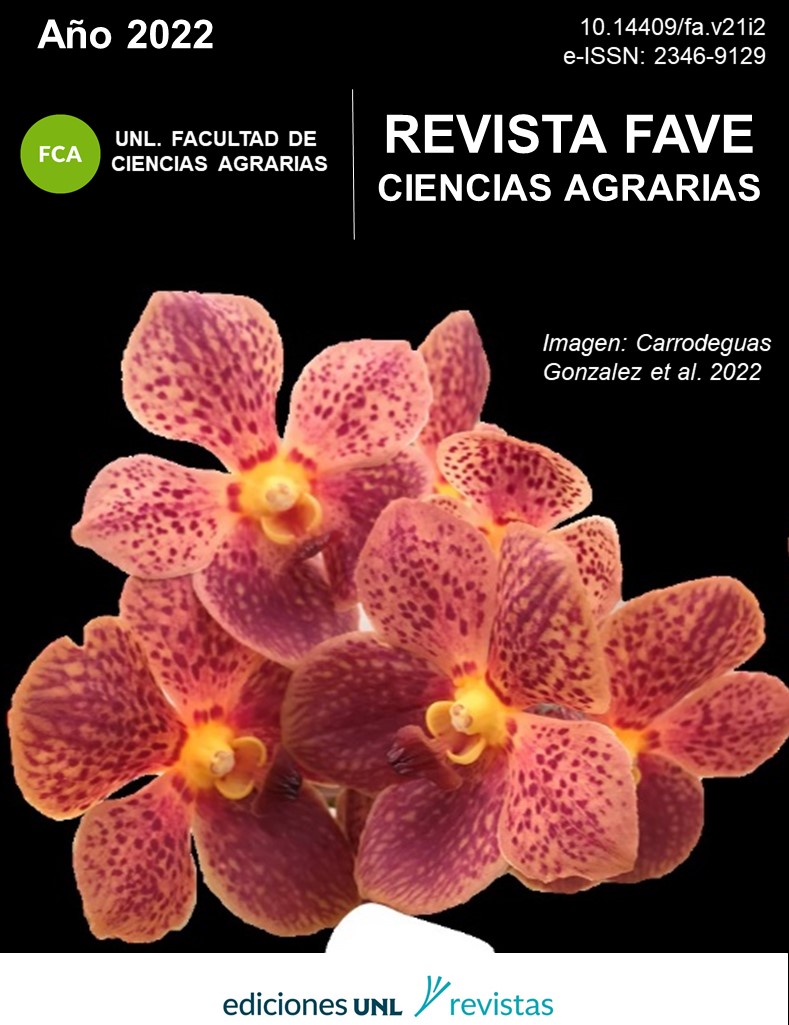Adjustment of the topographi c viability test by tetrazolium in Poncirus trifo- liata (L.) Raf.
DOI:
https://doi.org/10.14409/fa.v21i2.12005Keywords:
seed physiological quality, hardy orange, topographic test, viabilityAbstract
Poncirus trifoliata (L.) Raf., one of the main rootstocks in Argentina’s citrus production, is propagated from seeds, which exhibit delayed germination due to physical dormancy. The biochemical tetrazolium test (TZ) allows a quick assessment of seed physiological quality. Even though the test has been applied to Poncirus, specific protocols for this species have not been developed yet. In the present work, a preliminary assay was carried out to test the TZ concentration and incubation time recommended by seed analyst associations (1% for 18 and 24h), the results of which were used to establish treatments suited to Poncirus. The TZ salt concentrations evaluated were 0.2 and 0.5%, with 3 and 5 h exposure to TZ, in a 2x2x2 factorial design. Seeds were classified as viable or non-viable according to the different staining obtained. It was determined that 5 h of incubation in 0.2% TZ salt concentration of unscarified seeds is the most suitable combination for assessing viability of Poncirus trifoliata seeds. way.

















